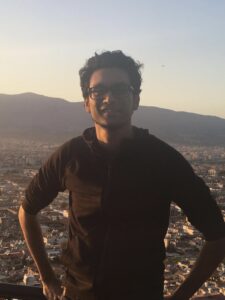
Ruwan is a field epidemiologist with considerable experience in humanitarian contexts and with displaced populations. He advocates for and conducts research to improve the standards of public health for crisis-affected communities. His current focus is on merging field investigation and modern analytical methods to improve outbreak and humanitarian response models. He recently completed a PhD in epidemiology and mathematical modelling as a Doctoral Foreign Scholar at the London School of Hygiene and Tropical Medicine, in collaboration with Epicentre-Médecins Sans Frontières. He evaluated the effects of targeted interventions for cholera outbreaks in fragile settings using mathematical modeling and observational studies.
Prior to this, Ruwan was the Senior Epidemiologist for the International Rescue Committee (IRC), providing technical support in humanitarian settings, primarily in the Democratic Republic of the Congo, Myanmar, Sierra Leone, South Sudan, and for the Syria crisis. He covered multiple areas, as NGO epidemiologists tend to do, including conflict and public health situation analysis, surveillance and outbreak response (Ebola, cholera, etc.), community health and primary care, noncommunicable disease management, and mortality estimation. He was also the Editor-in-Chief of Conflict and Health. Ruwan has also worked for the World Health Organization (WHO) in Haiti and South Sudan, International Organization for Migration in Vietnam, and he trained as an FETP fellow with the Canadian Field Epidemiology Program of the Public Health Agency of Canada.
Ruwan has published widely both research and public health guidance, including recently on cholera in The Lancet Infectious Diseases and on guidelines for early warning alert and response systems in emergencies for the WHO. In addition to his PhD, he has a MHS from the Johns Hopkins Bloomberg School of Public Health, and a BSc (Hons) from the University of Toronto.
Themes | Global Health & Humanitarianism |
Status | Active |
Events |
Epidemiological Modelling in Humanitarian Crises: From Critical Insight to Public Health Action, with Ruwan Ratnayake | November 29, 2024 |
Related Work |
N/A
|
Updates |
N/A
|
You may also be interested in...
Groundbreaking global health simulation slated for May
Written by Elaine Smith Students will be immersed in an unparalleled learning experience on May 1 and 2 as York University’s School of Global Health unveils an innovative global health simulation event designed for Faculty ...Read more about this Post
The Victor Dahdaleh Foundation to support University facilities, selected programming with $4M gift
The gift will support upgrades to the Victor Phillip Dahdaleh Building on York University’s Keele Campus, provide operating funding to CIFAL York and support a new operations facility for the Advanced Disaster, Emergency and Rapid Response Simulation ...Read more about this Post
Hot Off the Press – Modelling residual chlorine in humanitarian response in PLOS WATER
Research by Dahdaleh Global Health Graduate Scholar Michael De Santi (lead author) and his coauthors, including DI Research Fellow Syed Imran Ali and DI Faculty Fellow Usman Khan, has recently been published in PLOS WATER ...Read more about this Post
